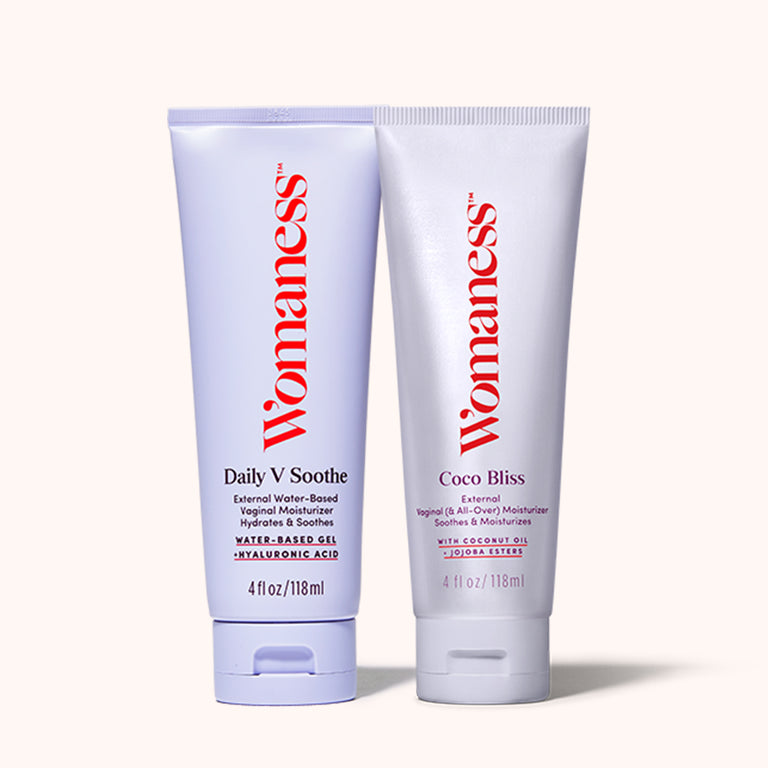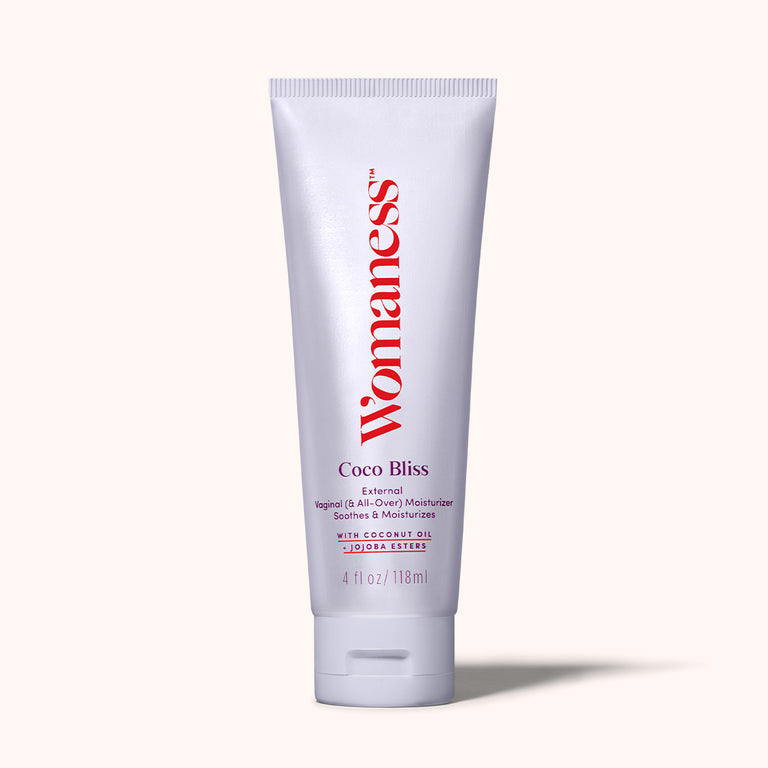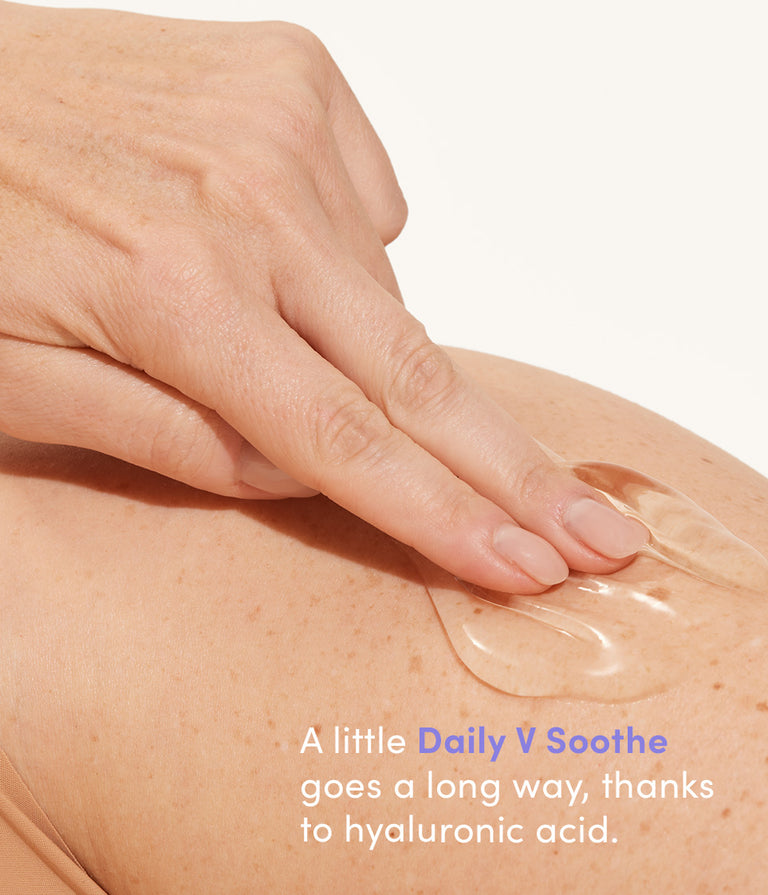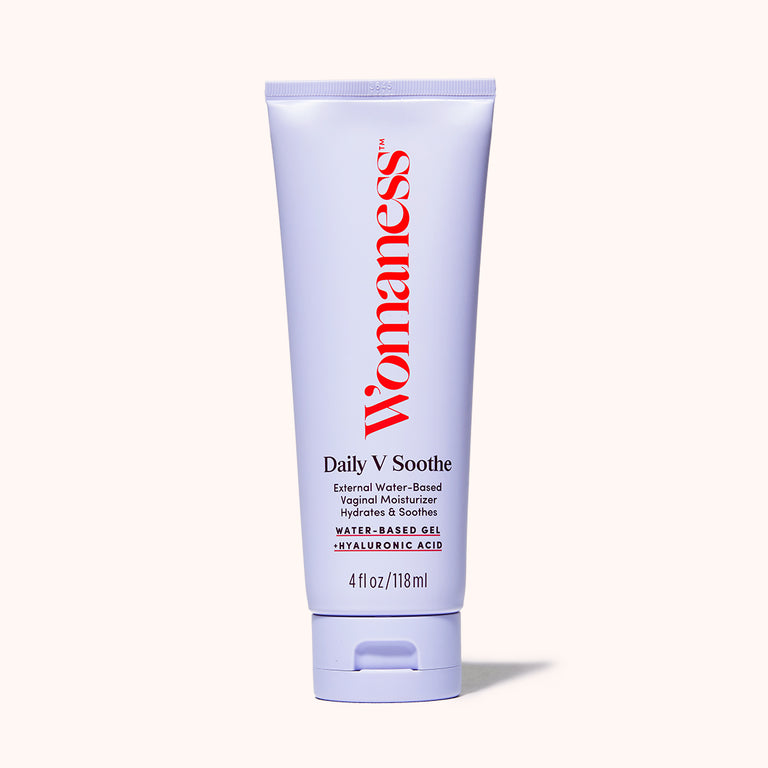By Womaness Editors 1-Minute Read

Welcome to ASK AN EXPERT, a series where we pose your real questions to our menopause experts for the intel you need. Need an answer? Post your question on The After Party, our private Facebook Group.
Your Question:
“What exactly is vaginal atrophy in menopause?”
The Answer:
From Dr. Lyndsey Harper, Board-Certified OB/GYN & founder/CEO of Rosy:
"Vaginal atrophy has other names, too: genitourinary symptoms of menopause, VVA or vulvar vaginal atrophy. They all refer to the same thing, which is a complex of symptoms—none of which are fun—caused by the lack of estrogen during and after menopause.
Vaginal atrophy is when estrogen levels start to decline because of menopause. It's sort of sad to compare it to this, but think of atrophy like a raisin, when it loses its juice and dries. It wrinkles, loses its elasticity, and loses its natural lubrication.
Vaginal atrophy refers to the same thing in the vagina. When that estrogen goes down, the tissue of the vagina thins, becomes less elastic or less stretchy, and stops creating its own mucus.
"When estrogen goes down in menopause, the tissue of the vagina thins, becomes less elastic or less stretchy, and stops creating its own mucus."
There are lots of things that can happen because of it.
The labia can start to stick together and become harder to pull apart, which is what we call labial agglutination. The clitoris can also develop adhesion, so there can be some scar tissue around the clitoris or between the clitoris and the clitoral hood.
We can become more prone to micro tears or tiny tears on the surface of the vagina and vulva, too. So with penetrative sex, if a penis goes in the vagina and it's not lubricated, it can drag and cause little tears. That can increase your risk for vaginal infection.
When the vagina doesn't have the lubrication it needs, it changes the pH balance. And that can make the good bacteria die off and help the bad bacteria proliferate. This can also increase your risk for urinary tract infections."
Get More Answers
Ask a Doctor: "How do I find a menopause specialist?"
Ask an OB/GYN: "What is vaginal estrogen?"
Ask a Sex Therapist: "What type of lubricant should I use?"






